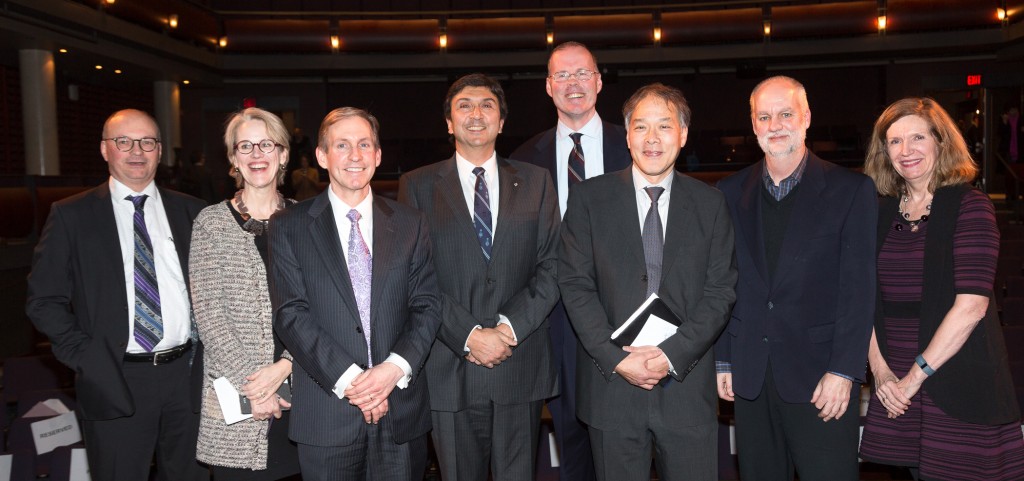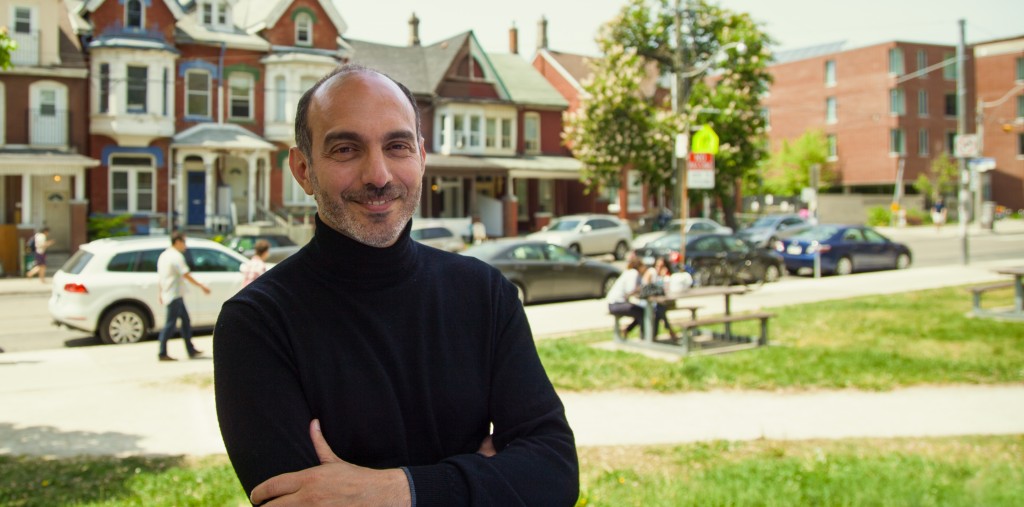Two Public Health Professors Receive Canada Research Chairs
February 11/2016Examining and improving societal health with enhanced prevention strategies, equitable resource allocation and innovative policy design are the focus of two new Canada Research Chairs awarded to Dalla Lana School of Public Health professors. Assistant Professor Laura Rosella and Associate Professor Arjumand Siddiqi received Canada Research Chairs from the Tri-agency...
New, online quality improvement course for personal support workers made possible by Closing the Gap Healthcare Group
February 10/2016Personal support workers (PSWs) across Ontario will soon have access to a comprehensive, online course on quality improvement – thanks to a generous donation from Closing the Gap Healthcare Group. The company has committed to contributing, over the next three years, to a new e-learning fund which will be administered...
Dalla Lana School of Public Health hosts distinguished panel on health system innovation
 February 08/2016
February 08/2016
An expert panel of thought leaders with distinctive viewpoints on Canada’s healthcare system met on February 3, 2016 at the University of Toronto to address the question: can we innovate our way to a sustainable health system? More than 350 students, alumni, faculty, staff and partners attended the event where...
Professor Alex Jadad appointed Director of the Institute for Global Health Equity and Innovation
 February 04/2016
February 04/2016
Professor Alejandro (Alex) Jadad is the permanent Director of the Institute for Global Health Equity and Innovation (IGHEI) as of January 1, 2016. His primary institutional home will shift from University Health Network and the Faculty of Medicine to the Dalla Lana School of Public Health. “This is an important...
JCB Working Group Explores the Ethical Dimensions Related to Implementing Physician-Assisted Death
February 03/2016On Feb. 3, 2016, the University of Toronto Joint Centre for Bioethics (JCB) released the discussion paper An Ethics-based Analysis and Recommendations for Implementing Physician-Assisted Dying in Canada by Nadia Incardona, Sally Bean, Kevin Reel and Frank Wagner. This paper is the first in a series that the JCB is...
HIV researcher receives $75K grant from Elton John AIDS Foundation
January 25/2016Dan Allman received a $75,000 grant from the Elton John AIDS Foundation in support of his work to prevent HIV infection among Canadian sex workers. “The Elton John Foundation doesn’t typically fund universities, but they found our project to be particularly compelling and community-oriented,” said Allman, an Assistant Professor in...
Associate Professor Pia Kontos reminds us that those living with Alzheimer’s are #StillHere
 January 13/2016
January 13/2016
January is Alzheimer’s Awareness Month and Associate Professor Pia Kontos’ research challenges misconceptions about the disease, which is the aim of the Alzheimer Society of Canada’s #StillHere campaign. “People with dementia face discrimination and social rejection. Often they are ignored. People will address their caregiver even when the person with...
Five per cent of Ontario residents account for majority of health care costs
January 11/2016Five per cent of Ontarians account for 65 per cent of provincial health care costs attributable to individual care with the top one per cent accounting for one third of these costs overall, according to a study by Institute of Health Policy, Management and Evaluation researchers. “Ontario spent more than...
Professor Anita Benoit appointed Interim Associate Director of the Waakebiness-Bryce Institute for Indigenous Health
January 05/2016Professor Anita Benoit is the Interim Associate Director of the Waakebiness-Bryce Institute for Indigenous Health (WBIIH) as of January 1, 2016. “I’m looking forward to furthering the Institute’s vision of contributing to thriving Indigenous communities, locally and globally,” said Benoit, who is an Assistant Professor at the Dalla Lana School...
U of T experts offer recommendations on physician-assisted dying
December 16/2015This week, two reports were published on physician-assisted dying, both of which emphasize a collaborative, equitable approach that is part of a continuum of end of life care options. On February 6, 2016, Canadian healthcare institutions must provide access to physician-assisted dying, as mandated by the Supreme Court of Canada....